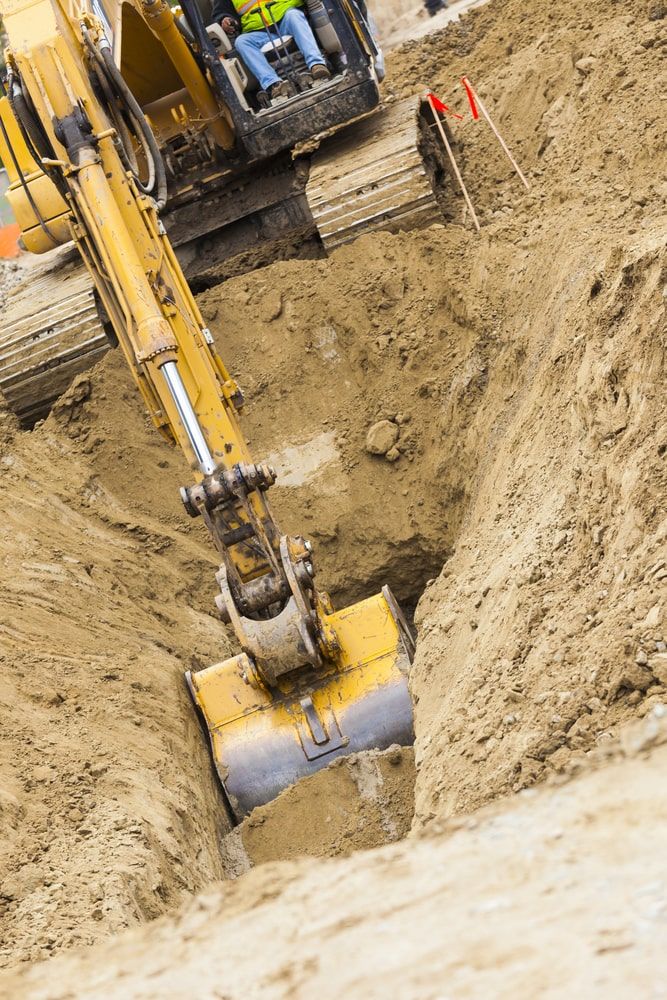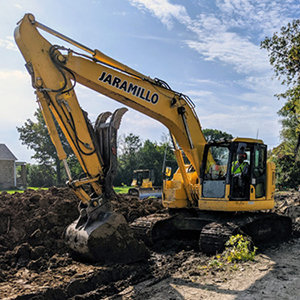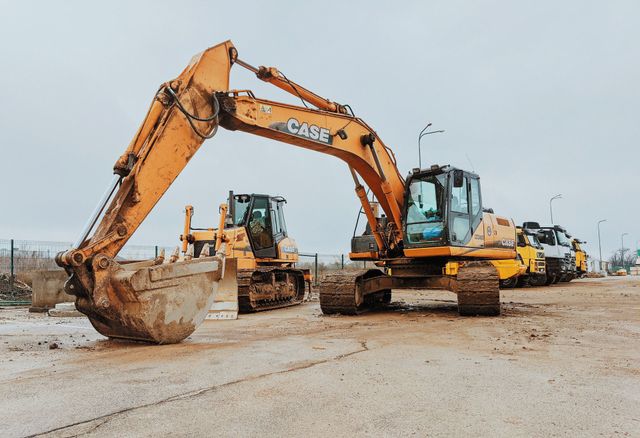Lancaster Excavation - Expert Excavation Services in Lancaster, OH
Lancaster Excavation - Expert Excavation Services in Lancaster, OH
Blog Article
Extensive Exploration: The Scientific Research Behind Superior Excavation Practices
The realm of excavation techniques is a domain name where science intertwines with craftsmanship to unearth the enigmas hidden below the earth's surface area. From ancient hand tools to modern hydraulic excavators, the advancement of excavation strategies has been a testament to human resourcefulness and technical advancements. Nonetheless, what truly sets superior excavation methods apart is a deep understanding of geological principles, paired with the application of advanced devices and techniques. By exploring the science behind these methods, we can reveal the keys that exist underneath our feet and value the accuracy and expertise that go into every dig.
Evolution of Excavation Methods
Throughout history, the evolution of excavation techniques has actually played a critical role beforehand construction techniques and archaeological discoveries. From the simple tools utilized by our ancestors to the advanced equipment used in modern times, the development of excavation approaches has actually significantly changed exactly how we come close to different tasks.
In old times, manual work with basic devices such as pickaxes, shovels, and wheelbarrows was the primary technique of excavation. This labor-intensive procedure restricted the deepness and extent of excavations, commonly causing slow development and restricted accessibility to certain websites. Nonetheless, as civilizations advanced, so did the tools and strategies used for excavation.
The Industrial Transformation marked a turning point in excavation exercise with the introduction of steam-powered equipment. This advancement revolutionized the area, permitting faster and much more comprehensive excavations. In contemporary times, modern technology plays a critical role in excavation, with developments like general practitioner systems, drones, and 3D scanning enhancing accuracy and effectiveness in the field. The advancement of excavation methods remains to form the means we develop, discover, and recognize the globe around us.
Role of Technology in Excavation

The assimilation of innovative modern technology has fundamentally transformed the field of excavation, boosting accuracy and performance to extraordinary levels. One of the essential technological advancements that has actually significantly influenced excavation practices is the usage of GPS systems. These systems permit specific mapping of excavation sites, enabling operators to properly locate below ground utilities and frameworks. Additionally, using telematics in excavation tools has made it possible for real-time monitoring of equipment efficiency, bring about aggressive maintenance and raised operational efficiency.
Furthermore, the arrival of 3D modeling and simulation software application has streamlined the preparation process for excavation projects. Drivers and designers can currently picture the whole excavation procedure before beginning, maximizing and recognizing possible difficulties operations. Combined with this, the implementation of drones in excavation tasks has actually promoted aerial studies, volumetric dimensions, and site evaluations with unrivaled speed and accuracy.
Geological Concepts in Excavation
An understanding of geological concepts is necessary for guaranteeing the architectural stability and stability of excavation sites. Geological factors play an essential duty in establishing the feasibility and safety of excavation projects.
Additionally, the geological structure of the area, including mistakes, cracks, and rock formations, have to be thoroughly examined to identify prospective dangers and difficulties. Excavating near geological fault or unstable rock developments can result in instability and prospective risks. By performing complete geological surveys and evaluation, excavators and engineers can create methods to alleviate risks and make sure the effective completion of excavation projects. Eventually, incorporating geological principles into excavation techniques is important for attaining risk-free, efficient, and sustainable outcomes.

Latest Tools for Excavation
In the realm of excavation techniques, modern advancements in devices have revolutionized the performance and precision of excavation processes. see These drones can offer detailed airborne studies of excavation websites, supplying real-time data on topography and potential hazards.
One more cutting-edge tool getting appeal is the implementation of 3D printing technology for developing personalized excavation tools. This allows for the manufacturing of specialized devices that are tailored to the particular demands of a project, increasing performance and minimizing downtime.
Furthermore, advancements in materials science have brought about the advancement of more powerful and extra long lasting excavation devices. septic ohio. Tungsten carbide-tipped excavator accessories, as an example, offer remarkable performance in difficult ground conditions, improving efficiency on-site
Science's Effect on Excavation Practices

Additionally, improvements in products scientific research have actually brought about the production of more powerful, more durable excavation devices and tools. The use of composite products in diggers and shovels has boosted their efficiency and longevity, ultimately boosting efficiency on excavation websites. Furthermore, scientific research study on dirt auto mechanics and geotechnical engineering has offered useful insights right into dirt behavior, permitting excavation experts to make informed choices pertaining to excavation approaches and dirt stablizing techniques. Overall, scientific research proceeds to drive innovation and improvement in excavation techniques, making click over here now excavation projects more efficient, cost-efficient, and sustainable.

Final Thought
Finally, the evolution of excavation techniques has actually been significantly influenced by advancements in innovation and a much deeper understanding of geological concepts. The most current devices and devices used in excavation have actually enhanced effectiveness and precision in the field. The application of clinical knowledge has significantly improved excavation techniques, bring about much more lasting and reliable approaches for digging deep into numerous sorts of materials.
In the realm of excavation methods, more information contemporary innovations in tools have changed the efficiency and precision of excavation processes. By leveraging scientific principles, the excavation sector has actually been able to significantly boost effectiveness, precision, and safety and security in excavation processes. GPR allows excavation teams to non-invasively scan and map subsurface structures, energies, and prospective dangers, allowing them to intend excavation tasks with greater accuracy and lowered risk of crashes.
Additionally, clinical research study on soil auto mechanics and geotechnical design has actually offered beneficial insights into dirt habits, permitting excavation professionals to make enlightened choices relating to excavation techniques and dirt stablizing techniques. Overall, science continues to drive innovation and improvement in excavation practices, making excavation jobs more effective, economical, and lasting.
Report this page